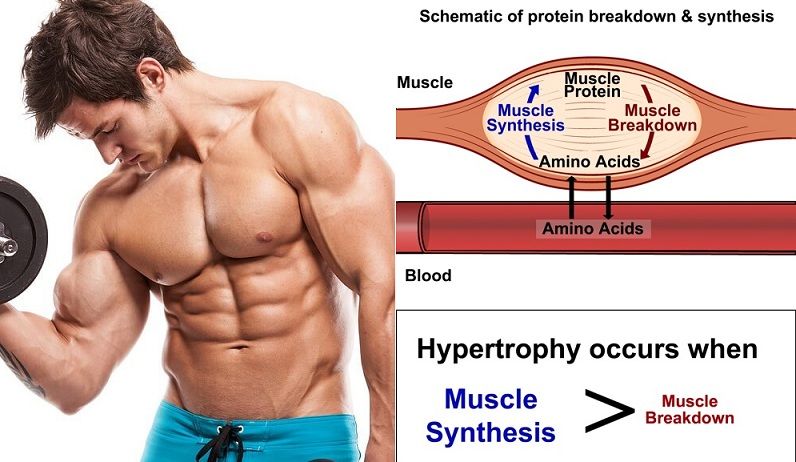When it comes to optimizing muscle recovery, athletes understand the importance of nourishing their bodies with the right nutrients. Protein is a fundamental component in this process, as it provides the essential building blocks to repair and regenerate muscle tissue. In this article, we will explore the power of protein and how athletes can leverage it to maximize their recovery potential.
The Role of Protein in Muscle Recovery
Protein acts as the primary source of amino acids, which are the building blocks of muscle tissue. During intense physical activities, muscle fibers undergo microscopic damage. Protein consumption initiates muscle protein synthesis, stimulating the repair and growth of muscle fibers, leading to improved recovery and overall muscular adaptation.
It is crucial for athletes to consume an adequate amount of protein post-workout to kickstart this recovery process. Research suggests that consuming high-quality protein within a 30-minute to one-hour window following exercise can maximize muscle protein synthesis rates.
Optimal Protein Sources for Muscle Recovery
All protein is not created equal. Athletes should focus on consuming high-quality protein sources to optimize muscle recovery. Here are some excellent sources:
Lean Meats (Chicken, Turkey, and Beef): Lean meats are rich in complete proteins, containing all the essential amino acids needed for muscle repair.
Fish and Seafood: Fish, such as salmon and tuna, are not only packed with protein but also abundant in omega-3 fatty acids, known for their anti-inflammatory properties.
Eggs: Egg protein is considered one of the most complete protein sources available, containing all the essential amino acids in an ideal ratio.
Dairy Products: Milk, Greek yogurt, and cottage cheese are excellent sources of protein. Additionally, dairy contains calcium, which is essential for maintaining strong bones.
Plant-based Options: Vegetarian and vegan athletes can obtain protein from sources like tofu, tempeh, legumes, and quinoa. Combining various plant-based proteins can ensure a complete amino acid profile.
Timing and Amount of Protein Intake
In addition to protein quality, understanding the timing and amount of protein consumption is vital for muscle recovery. To optimize recovery, athletes should aim to consume around 0.14-0.23 grams of protein per pound of body weight within the first hour post-exercise. Distribution throughout the day is also important, as it allows for a steady supply of amino acids to the muscles.
For example, an athlete weighing 160 pounds should target approximately 22-36 grams of protein within the first hour after exercise. This can be achieved through a post-workout shake or a balanced meal, depending on individual preferences.
Supplementation: Making Use of Protein Powders
In certain situations, athletes may struggle to meet their protein requirements solely through whole food sources. This is where protein powders come into play. Protein powders offer convenience and a high concentration of protein per serving.
Whey protein is one of the most popular choices for athletes due to its rapid digestion and absorption rates. However, vegan athletes can opt for plant-based protein powders made from sources like pea, hemp, or rice protein.
It is important to note that while protein powders can be a convenient supplement, they should not replace whole foods entirely. A combination of both is the most effective approach.
Conclusion
In order to optimize muscle recovery, athletes should prioritize protein consumption and quality. Ensuring an adequate protein intake post-workout, alongside a well-balanced diet and proper training, can greatly improve muscle repair, recovery, and overall athletic performance. Remember, muscles need protein power to bounce back stronger!
